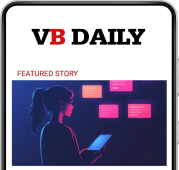Check out all the on-demand sessions from the Intelligent Security Summit here.
The launch of OpenAI’s ChatGPT has the world abuzz about the advanced capabilities of artificial intelligence (AI). How will it transform industries? What does it mean for Google Search? And will it automate away entire professions? These are just a small sampling of the questions many have been asking about the possibilities. But while there are several unknowns about the impact of this technology, one thing is all but certain: 2023 will be the year for large language models (LLMs).
Many applications for LLMs, like assistive writing and summarization tools, are already here and beginning to change the nature of work as we know it — and will become much more mainstream very soon. But the form that this mainstreaming takes and how it will be implemented remains an outstanding question. Here is what the next year could bring.
Large language models: From hype to real change
First off, because there’s so much hype, there’s a good chance that LLMs will be hugely disappointing for some in 2023 as companies will try to market half-baked products as panaceas. LLMs are trained (in part) to give convincing answers, but these answers can be untrue and unsubstantiated. Inevitably, some people will try to rely on them, with potentially disastrous consequences, leading to the further spread of misinformation.
That being said, those who are more thoughtful in their approach to LLMs have reason to be very optimistic. LLMs will still change the nature of work (even if the aforementioned disappointment tempers expectations). Writing assistants, like Jarvis, which uses AI to write fast marketing content, will be the most obvious example of tools that easily expand their capabilities. Other document editors will likely follow suit, moving generative AI for language from the “early adopter” crowd to the “early majority” crowd.
Event
Intelligent Security Summit On-Demand
Learn the critical role of AI & ML in cybersecurity and industry specific case studies. Watch on-demand sessions today.
What’s perhaps even more interesting is the subtle influence that these AI advancements have on non-generative applications of LLMs. Text classification and named entity recognition (NER) will noticeably improve, enabling a much wider array of applications.
Let’s take data extraction from documents, for example. With the typical accuracy rates of today, the applications are limited. You wouldn’t want to rely entirely on AI to extract and calculate the total dollar value your company spends on SaaS. But with higher accuracy rates, you can rely more and more on that number — starting by relying on it as an estimate, and eventually exceeding the level of trust you might have in another person.
What’s to come for LLMs
One of the larger outstanding questions of ChatGPT is whether it will lead to mass job elimination. The answer is no. But foundation models will embolden challengers to established business models and practices. For example, in the world of media, small outfits will be able to produce high-quality content at a fraction of the cost (what Corridor Video did with Stable Diffusion and the “Spider-Man: Into the Spiderverse” movie, for instance).
Content writers will be able to deliver high-quality articles at an unprecedented rate, and customer service teams will be able to respond to customer requests that much faster. Small, tech-enabled legal practices will also be able to challenge established partnerships, making it easier for small businesses to automate what they previously outsourced.
There’s no doubt that the leap forward with ChatGPT will enable a whole host of exciting possibilities. Many elements of this new technology will start to become pedestrian. We hardly bat an eye when Google autocompletes a search query for us, or when our phone auto-suggests relevant text message replies. I often forget how magical voice-to-text technology used to feel (and how text-to-voice seems to get better every day).
While it’s easy to get lost in the AI craze, it’s important to understand the realities of where this technology fits in the context of the broader tech environment. Next year, LLMs will power magical, generative features that people everywhere will use. And by the end of the year, the features that were most transformative, that changed industries the most, and that people come to rely on, will also feel pedestrian.
Cai GoGwilt is the CTO and cofounder of Ironclad
DataDecisionMakers
Welcome to the VentureBeat community!
DataDecisionMakers is where experts, including the technical people doing data work, can share data-related insights and innovation.
If you want to read about cutting-edge ideas and up-to-date information, best practices, and the future of data and data tech, join us at DataDecisionMakers.
You might even consider contributing an article of your own!









